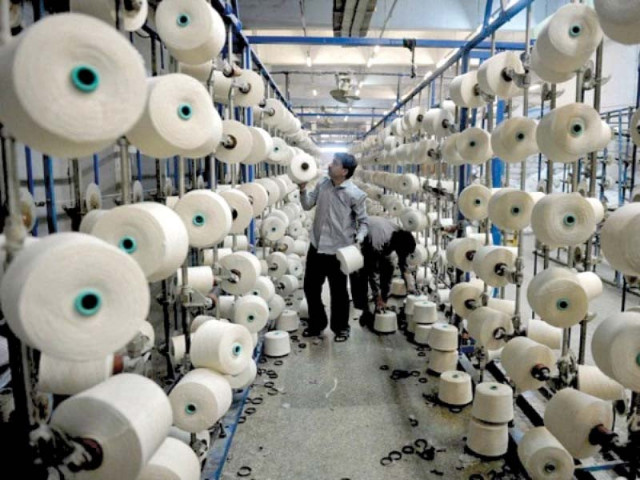APTMA urges release of machinery
Restrictions on clearance of textile machinery likely to impact booked orders

Textile millers have called on the government to release imported textile machinery and spare parts immediately to ensure smooth operation of the sector.
“We urge the government to allow immediate release of textile machinery and spare parts that are stuck due to the restrictions on import of items covered under Chapter 84 and 85 of the Customs Tariff,” said Asif Inam, Chairman of the All Pakistan Textile Mills Association (APTMA) in a statement.
“The restriction on the clearance of machinery is ostensibly pushing the industrial sector towards a new crisis,” noted Shabbir Mansha Churra, Vice President of the Federation of Pakistan Chamber of Commerce and Industries (FPCCI).
“The policies of the State Bank of Pakistan (SBP) go against economic logic,” he added.
“If import of machinery and parts, which are essential for the smooth functioning of power plants, are halted, the industry will stop running gradually,” Asif Inam emphasised.
He further stated that, “Our members are facing severe problems running their mills due to the government ban, and subjecting the SBP to the permission of the federal government.”
Speaking to The Express Tribune, Aba Ali Habib Securities Textile Sector Analyst, Ali Asif said, “In order to stay competitive in the international market and keep up operational efficiency, the textile industry needs constant upgradation, which requires imports of parts and machinery.”
“Therefore, the recent restrictions on textile machinery imports will likely affect our textile exports as companies are unable to update and maintain their equipment to meet international standards,” he added.
“The government should allow immediate release of machinery required by the textile sector, which has the highest contribution to overall exports,” added Saad Ziker, a Textile Sector Analyst.
“If the government does not allow this, there will be difficulties in completing orders which are already booked,” he added.
Inam highlighted that, “the textile industry is a major export-oriented industry reeling in more than 60% of Pakistan’s foreign exchange earnings.”
He further requested Prime Minister Shehbaz Sharif and the Minister for Finance, Miftah Ismail to take notice of the situation and issue directives to the relevant authorities to allow import of textile machinery and spare parts covered under Chapter 84 and 85 of the Customs Tariff without any further delays and in the best interest of the country’s economy.
“If orders are not completed on time, it will create a disruption from our side and produce a negative image of Pakistan in international forums,” urged Ziker.
“Government officials should realise that textile exports are the key to reducing the current account deficit (CAD). If exports do not increase, it will ultimately have an impact on the overall economic performance of the country,” he warned.
Published in The Express Tribune, September 9th, 2022.
Like Business on Facebook, follow @TribuneBiz on Twitter to stay informed and join in the conversation.


















COMMENTS
Comments are moderated and generally will be posted if they are on-topic and not abusive.
For more information, please see our Comments FAQ